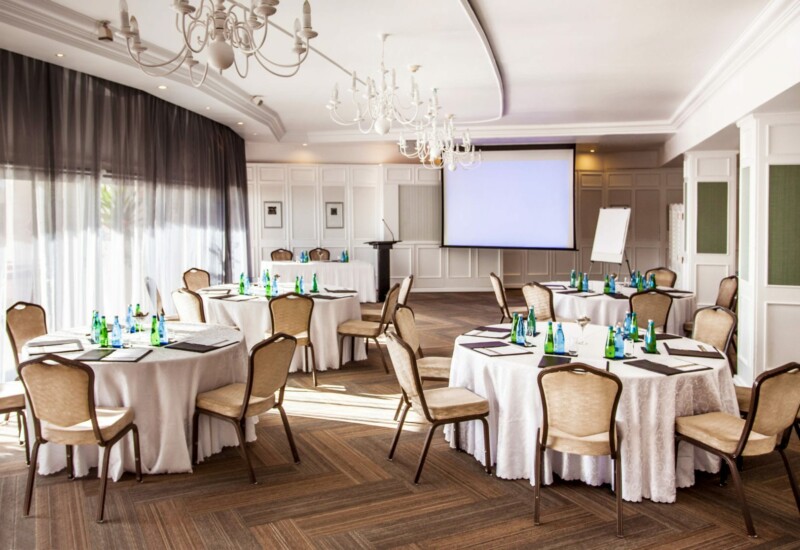Boutique hotels are intimate and feel personal – things larger hotels can never quite imitate, but what exactly are the fabulous details that make boutique hotels feel ‘boutique’?
When one thinks of boutique hotels, intimacy and uniqueness certainly come to mind; however, at the core, the main difference between a regular hotel and a boutique hotel is that no two boutique hotels are alike, unlike traditional chain hotels. For the most part, boutique hotels are much smaller than regular hotels, and cannot accommodate as many people, but the focus of the boutique hotel is a lot more intimate.
Boutiques can at times be part of a luxury hotel association or owned by a larger management company. Still, these destinations forgo the type of accommodations one would associate with high-end hotels in favour of a hip, bespoke look and feel.
About the history of boutique hotels, the Glion Institute of Higher Education says: “It started in the 1980s with some small hotels in the centre of big cities, like London and New York. The hoteliers who started this successful trend used to feature their boutique properties with stylish furniture, refused to affiliate to any chain, and tried to offer an intimate service to their ‘chic’ guests. Those brave entrepreneurs could not imagine at that time that they would have inspired hundreds of competitors in the course of the next 30 years.”
Some key characteristics listed by the institute include:
- A boutique hotel is small. It should not have more than 100 rooms, because it has to offer a personal touch to every guest.
- It is an independent hotel, or part of an ‘only-boutique’ chain.
- It is located in the city centre or in a very trendy area, usually the main shopping one.
- It features designer decor, with all the newest technological gadgets.
- It feels part of the place where it is located; e.g. by offering local food.
- A boutique hotel is not only rooms, it gathers people because it is trendy and cool to gather in its lobby, restaurant and bar. Do not be surprised if the restaurant chef is a very famous one.
They also tend to be hot spots for travellers and tourists because of their accessibility and their tendency to be culturally representative of the local area.
According to USA Today, the concept of boutique hotels began in the 1980s with the opening of Morgans in New York City. Founders Ian Shrager and Steve Rubell, who coined the term ‘boutique hotel’, wanted to differentiate Morgans from big-box hotels, which they compared to department stores. The hoteliers sought to give guests more personalised service, such as they might expect to receive in a boutique clothing shop. Since then, more and more boutique hotels have sprung up all over the world.
So how do you know boutique is actually boutique? In a blog post, US-based travel agency Covington Travel explains the ins and outs of boutique hotels:
Size
Boutique hotels are typically small, with 10 to 100 rooms. They are intimate in scale, creating the ambience of being a personal guest in a private home, rather than just a hotel occupant. They often have communal ‘living spaces’ where guests can interact.
Original
These properties tend to possess a distinctive vibe and never have the one-size-fits-all feel of being one in a group. They are often operated independently and are not affiliated with a major chain. That said, the largest independent boutique hotel operator in the world, the Kimpton Hotel brand, is owned by InterContinental Hotels & Resorts. They may also be independently owned, but belong to a luxury hotel association.
Design
The architecture and interior design of a boutique hotel is as unique as its operations, but always upscale and often combining historic details with chic elegance. The lines may be sleek and contemporary or quaint and homey – or even an artistic amalgamation. Boutique hotels convey a progressively forward-looking style with fastidiously chosen décor. Guestrooms are individually decorated, and use upscale linens and exclusive amenities.
Character
Boutique hotels usually have an eccentric personality. They are fun and funky, trendy and offbeat. Their quirky sense of humour might be exhibited through creative guest offerings.
Cuisine
Like everything else about boutique hotels, their restaurants and bars tend to be hip, trendy and locally sourced. High-quality, authentic cuisine and comfortable cocktail atmospheres make these dining and drinking spots popular with locals as well as guests.
Clientele
The types of guests attracted to boutique hotels are as individual as the hotels themselves and tend to be just as hip. Guests – from millennials to boomers – who enjoy creative design, quirky character, and luxurious service will be right at home in boutique hotels.







